11, Dec 2023
Higher education in India serves as the cornerstone for societal development, aiming to cultivate enlightened, socially conscious, and skilled individuals capable of devising robust solutions to national challenges.
Beyond individual employment opportunities, quality higher education is envisioned as the catalyst for a vibrant, cooperative, and prosperous nation. However, a closer examination reveals a multitude of challenges impeding the realization of this vision.
Let's discuss some of the pressing challenges in the Indian Higher Education Institutions:
1. Severely Fragmented Higher Educational Ecosystem
The higher education landscape in India is marked by a concerning level of fragmentation, with a multitude of institutions operating independently. This fragmentation not only hinders collaboration but also obstructs the establishment of a cohesive and standardized educational framework.
The lack of a centralized authority overseeing the system contributes to disparities in educational standards, resource allocation, and infrastructure development. The absence of a unified vision impedes progress, resulting in a higher education ecosystem that is disjointed and often lacking in coherence.
Solution:
- Establish a National Higher Education Body: Create a centralized authority responsible for overseeing the higher education system, promoting cohesion, and facilitating collaboration among institutions.
- National Higher Education Database: Implement a Higher Education ERP solution to develop a comprehensive database. This ERP software will efficiently collect and share crucial data on student enrollment, faculty qualifications, and institutional performance.
- Consortia Formation: Leverage Higher Education ERP technology to encourage the formation of consortia among institutions. This ERP software facilitates seamless resource-sharing, program development, and cross-institutional mobility for both students and faculty.
2. Less Emphasis on the Development of Cognitive Skills and Learning Outcomes
A pervasive challenge within the Indian higher education system is the predominant emphasis on rote learning rather than the development of cognitive skills and practical learning outcomes. The conventional approach, centered around memorization and regurgitation of facts, falls short in cultivating critical thinking, problem-solving abilities, and practical application of knowledge.
Graduates, despite possessing theoretical knowledge, often find themselves ill-equipped to navigate the complexities of the contemporary job market, where adaptability and critical reasoning are paramount.
Solution:
- Hands-On Learning Integration: Integrate practical experiences like internships, research projects, and simulations into the curriculum to develop practical skills and problem-solving abilities.
- Active Learning Methodologies: Optimize teaching strategies using College ERP software by promoting active learning methodologies. Utilize ERP solutions to facilitate group discussions, case studies, and role-playing, fostering critical thinking and deep engagement among students.
- Faculty Training: Enhance faculty capabilities with College ERP by providing comprehensive training on effective teaching methods. This ERP software emphasizes cognitive skills development, empowering educators to deliver impactful learning experiences.
3. Rigid Separation of Disciplines with Early Specialisation
The rigid separation of disciplines and the trend towards early specialization present formidable challenges to the holistic development of students. This compartmentalized approach restricts the educational horizons of learners, limiting their exposure to diverse fields of knowledge.
The consequences extend beyond graduation, hindering interdisciplinary collaboration and reducing the adaptability of graduates in a world that increasingly demands multifaceted skill sets. The compartmentalization of education impedes the cultivation of a holistic worldview and stifles creativity and innovation.
Solution:
- Encourage Interdisciplinary Courses: Implement Higher Education ERP solutions to promote and manage interdisciplinary courses and programs. This College ERP technology facilitates seamless coordination, enabling students to combine knowledge from various fields efficiently.
- Interdisciplinary Research Centers: Establish dedicated centers and institutes to facilitate collaboration among researchers from diverse disciplines.
- Faculty Incentives: Create incentives for faculty to collaborate on interdisciplinary research projects, fostering a culture of cross-disciplinary engagement.
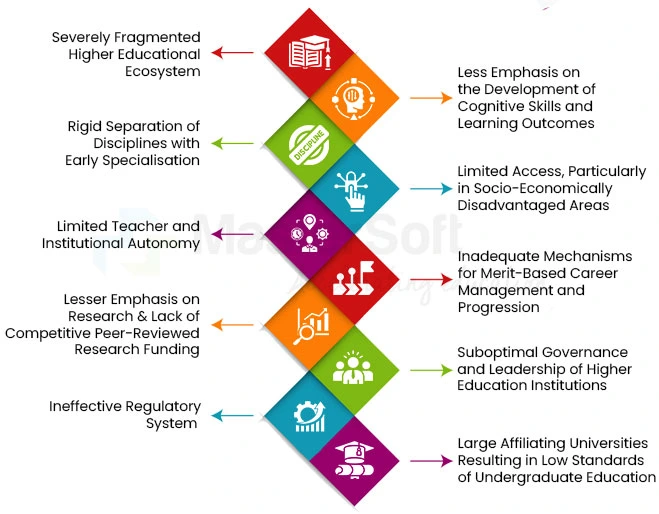
4. Limited Access, Particularly in Socio-Economically Disadvantaged Areas
Access to higher education remains a critical challenge, particularly in socio-economically disadvantaged areas. The geographical concentration of educational institutions in urban centers exacerbates social and economic inequalities.
The limited availability of institutions teaching in local languages further widens the gap, creating barriers for students who are not proficient in English. As a result, a significant portion of the population is deprived of the transformative opportunities that higher education can offer, perpetuating socio-economic disparities.
Solution:
- Increase Funding for Scholarships: Allocate additional funding for scholarships and financial aid programs to make higher education more affordable for students from disadvantaged backgrounds.
- Expand Higher Education Institutions (HEIs): Establish more HEIs in rural and underserved areas to improve access for students from these regions.
- Promote Local Language Use: Encourage the use of local languages in teaching and learning to enhance accessibility for students not proficient in English.
5. Limited Teacher and Institutional Autonomy
Educators and institutions in the Indian higher education system grapple with limited autonomy, hindering innovation and creativity. The centralized control over curriculum design, teaching methodologies, and decision-making processes constrains the ability of teachers to adapt to evolving educational paradigms.
Institutions, lacking the autonomy to make decisions about admissions, faculty appointments, and resource allocation, find themselves restrained in responding effectively to the unique needs of their student populations and the demands of a rapidly changing educational landscape.
Solution:
- Teacher Autonomy: Leverage the capabilities of Higher Education ERP solutions to grant teachers greater autonomy over curriculum design and teaching methodologies. This ERP software empowers educators to tailor education to the specific needs of their students efficiently.
- Institutional Empowerment: Enable institutions with College ERP solutions to make informed decisions about admissions, faculty appointments, and resource allocation. This ERP software fosters a culture of institutional autonomy, providing streamlined processes for decision-making.
- Performance-Based Funding: Implement a system of performance-based funding, rewarding institutions for improving student outcomes and fostering a commitment to excellence.
Promoting Student Engagement: The Key To Academic Excellence In Higher Education
6. Inadequate Mechanisms for Merit-Based Career Management and Progression
The absence of effective mechanisms for merit-based career management and progression poses challenges to the professional growth of faculty and institutional leaders. The current system, often marred by opacity and subjectivity, fails to transparently recognize and reward merit.
This lack of a robust system for career advancement contributes to stagnation within the academic ranks, stifling the pursuit of excellence and discouraging educators from making meaningful contributions to their fields.
Solution:
- Transparent Meritocracy: Implement College ERP Solutions to establish a transparent and meritocratic system for faculty promotion and career advancement. This ERP software ensures fairness and efficiency in the evaluation process, encouraging excellence.
- Professional Development Opportunities: Provide ample opportunities for faculty to engage in professional development and research activities, ensuring continuous growth.
- Recognition and Rewards: Acknowledge outstanding teaching and research with awards, fellowships, and other forms of recognition, promoting a culture of excellence.
7. Lesser Emphasis on Research and Lack of Competitive Peer-Reviewed Research Funding
Research, a cornerstone of higher education, faces systemic challenges in India. Many universities and colleges place less emphasis on research, with limited resources allocated to research infrastructure and activities. The absence of competitive, peer-reviewed research funding across disciplines further exacerbates the issue.
As a consequence, the culture of inquiry and innovation within academic institutions is stifled, impeding their ability to contribute meaningfully to global knowledge creation and technological advancements.
Solution:
- Increased Research Funding: Allocate more funding for research at universities and colleges, fostering a conducive environment for meaningful scholarly contributions.
- Competitive Peer-Reviewed Research Funding: Establish competitive peer-reviewed research funding programs across all disciplines to encourage high-quality research.
- Academia-Industry Collaboration: Implement Higher Education ERP solutions to facilitate and manage collaboration between academia and industry. This ERP solution streamlines communication, fosters innovation, and ensures efficient technology transfer for real-world applications of research.
8. Suboptimal Governance and Leadership of Higher Education Institutions
Inefficiencies in governance structures and a lack of visionary leadership contribute to the challenges faced by higher education institutions. The absence of clear and effective governance mechanisms results in delayed decision-making, bureaucratic hurdles, and inefficient resource allocation.
This suboptimal governance not only affects the day-to-day functioning of institutions but also undermines their long-term strategic planning and ability to adapt to evolving educational trends.
Solution:
- Clear Governance Structures: Adopt a College ERP software to establish clear governance structures, defining roles and responsibilities for stakeholders. This ERP solution reduces ambiguity, promotes accountability, and ensures streamlined management of administrative processes within educational institutions.
- Transparency Promotion: Actively promote transparency in decision-making processes by making information readily available to students, faculty, and the public.
- Stakeholder Participation: Implement mechanisms for stakeholder participation in decision-making, including student and faculty councils, ensuring a more inclusive and participatory governance approach.
9. Ineffective Regulatory System
The regulatory framework governing higher education in India faces inefficiencies that impact the quality and consistency of educational standards. A lack of adaptability and responsiveness within the regulatory system poses challenges in ensuring compliance, addressing emerging issues, and enforcing necessary reforms.
The bureaucratic hurdles and delays in regulatory processes hinder the timely implementation of quality measures, perpetuating issues related to accreditation, curriculum development, and institutional oversight.
Solution:
- Streamlined Regulatory Processes: Streamline regulatory processes to reduce bureaucracy, expedite approvals, and create a more efficient system.
- Enhanced Oversight Mechanisms: Use Higher Education ERP solutions for efficient monitoring, ensuring compliance with quality standards, and addressing issues of corruption and malpractice.
- Empowered Regulatory Bodies: Empower regulatory bodies to take decisive action against institutions that violate regulations, ensuring accountability and maintaining the integrity of the higher education system.
10. Large Affiliating Universities Resulting in Low Standards of Undergraduate Education
The prevalence of large affiliating universities, while intended to cater to a broad student base, raises concerns about the maintenance of high standards in undergraduate education. The hierarchical structure of these institutions often leads to challenges in maintaining academic rigor, ensuring the quality of education provided to undergraduate students, and fostering a conducive learning environment.
The sheer scale of these universities can contribute to administrative inefficiencies, making it difficult to provide personalized attention and mentorship to individual students.
Solution:
- Streamlined Administration: Leverage College ERP software to decentralize administrative functions and establish autonomous units. This ERP solution streamlines operations and enhances decision-making efficiency.
- Academic Autonomy for Departments: Grant autonomy to individual departments to foster innovation and uphold high standards. Implementation involves providing departments with greater control over curriculum design, faculty recruitment, and academic policies.
- Investment in Technology: Mitigate administrative challenges using College ERP software. This ERP solution ensures streamlined processes and improved communication. Maximize the benefits of digital systems through effective staff training.
AISHE - All India Survey On Higher Education
Conclusion:
As India strives for educational excellence, addressing these challenges becomes paramount. A holistic transformation requires collaborative efforts from policymakers, educators, and stakeholders.
By implementing strategic solutions, India can sculpt a higher education system that not only produces employable graduates but also propels the nation towards innovation, progress, and societal well-being. The journey towards a brighter future for higher education begins with acknowledging these challenges and collectively working towards sustainable solutions.
The Future Is Here: Next-Generation Solutions for Higher Education
Mobile: 08448010216
Email:info@mastersofterp.com

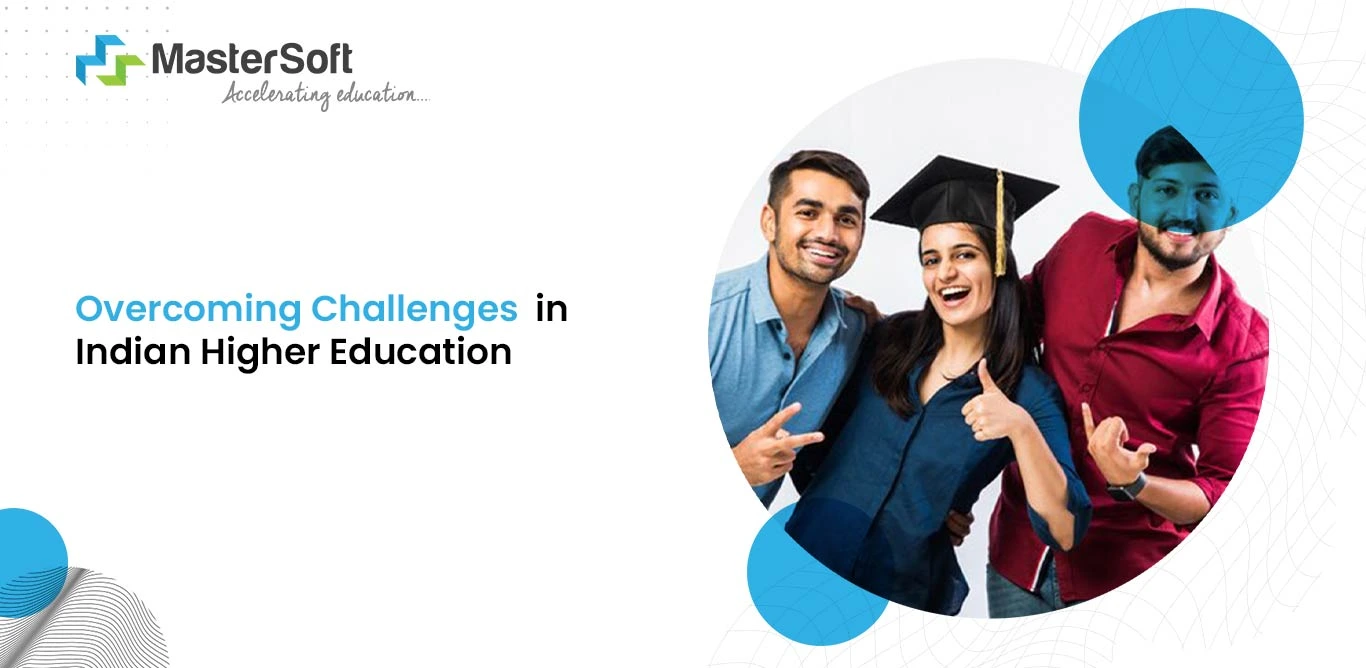


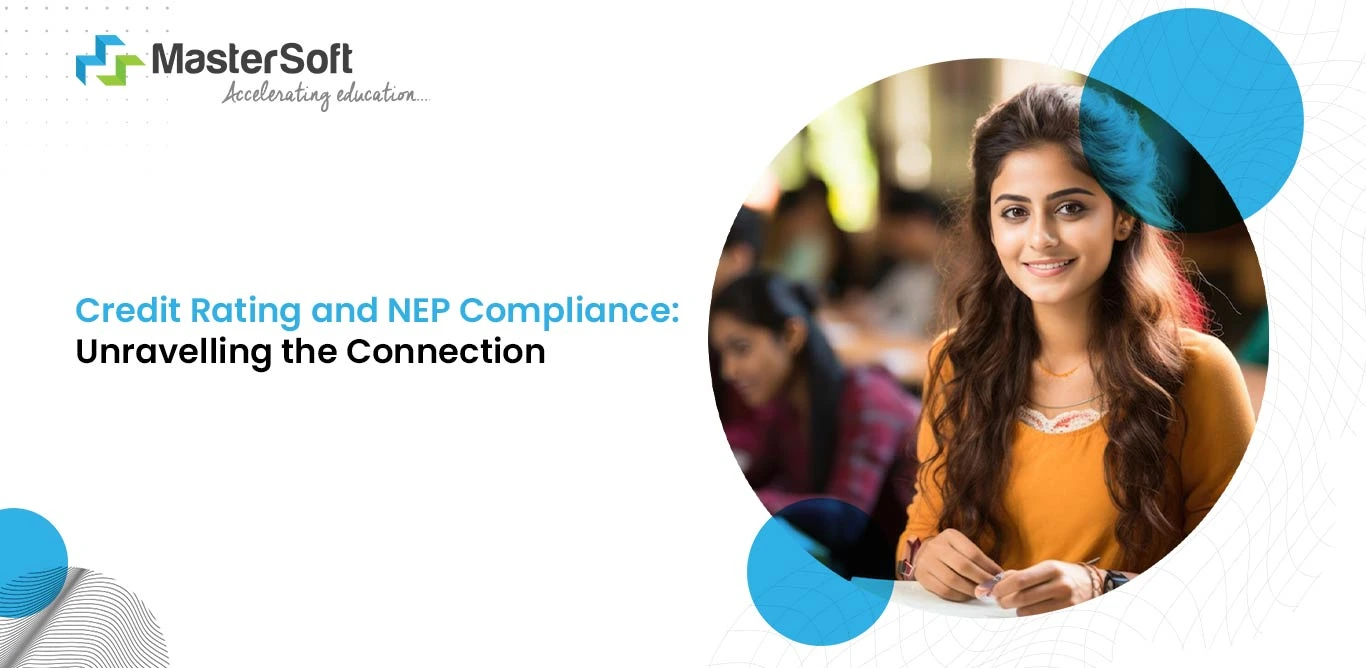

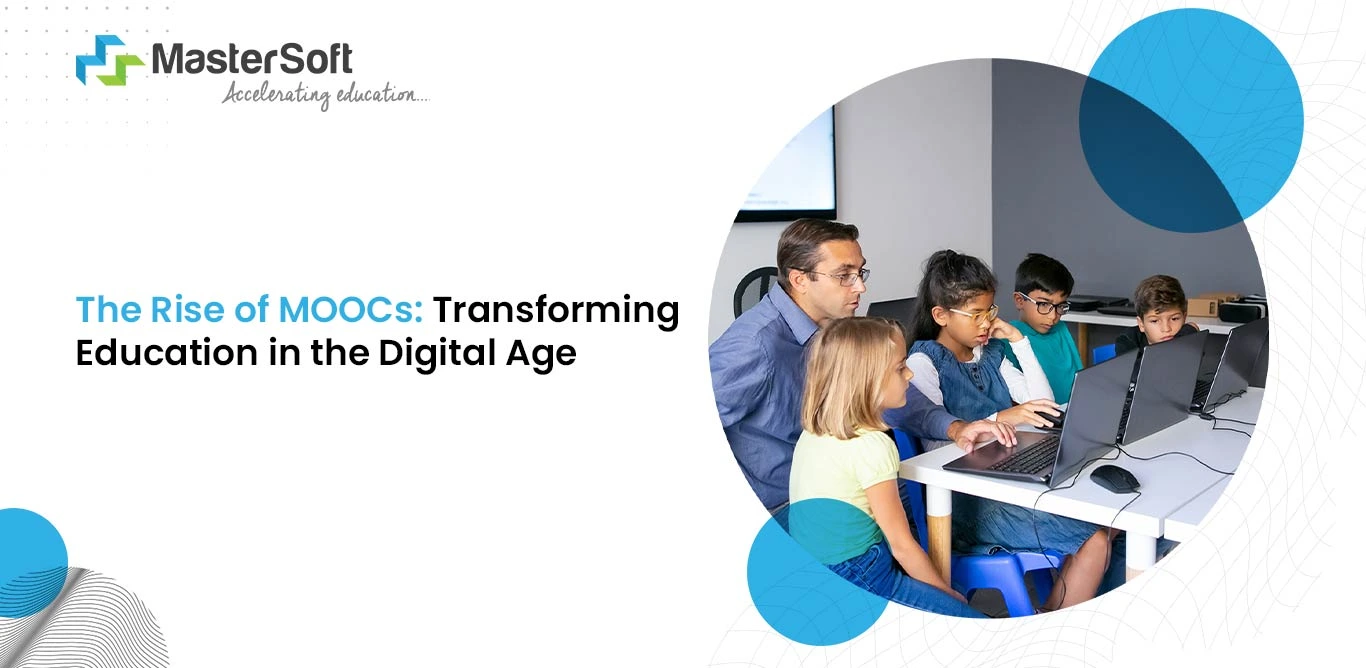
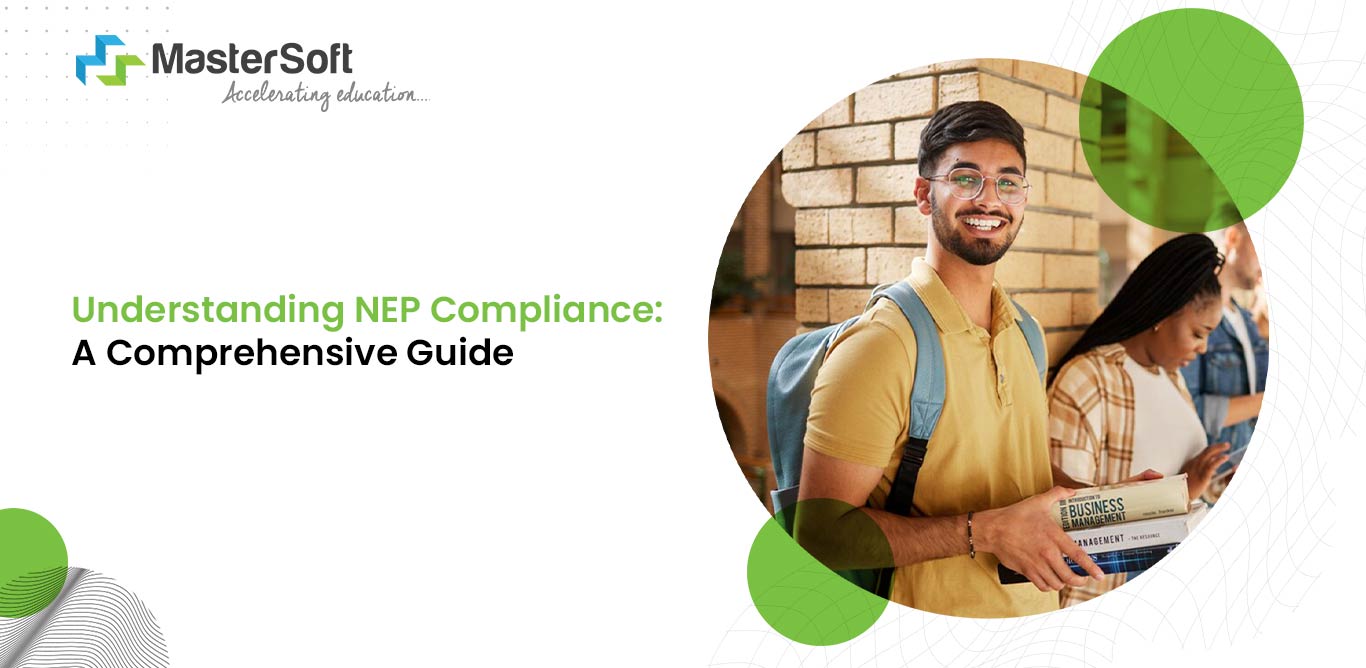

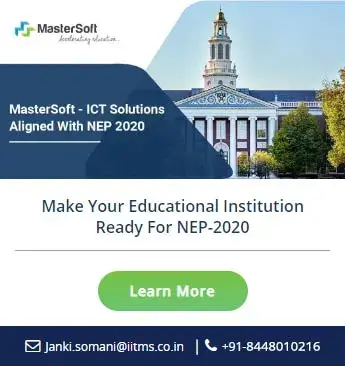
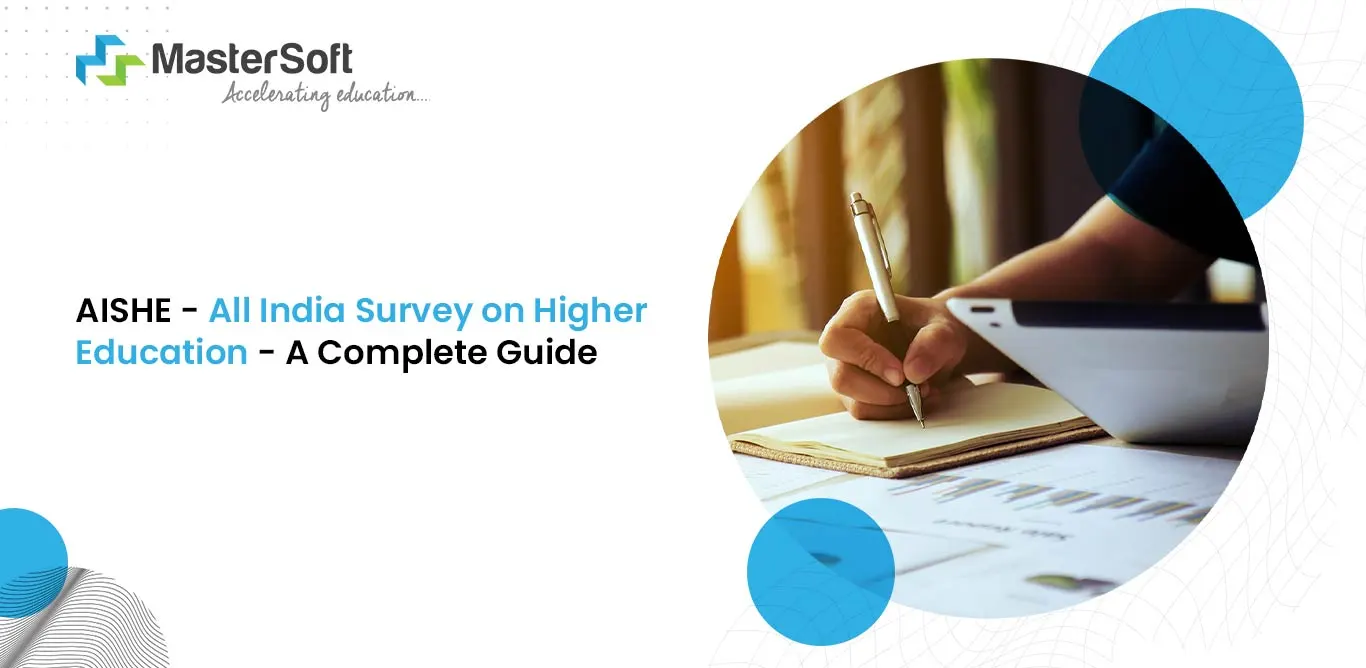


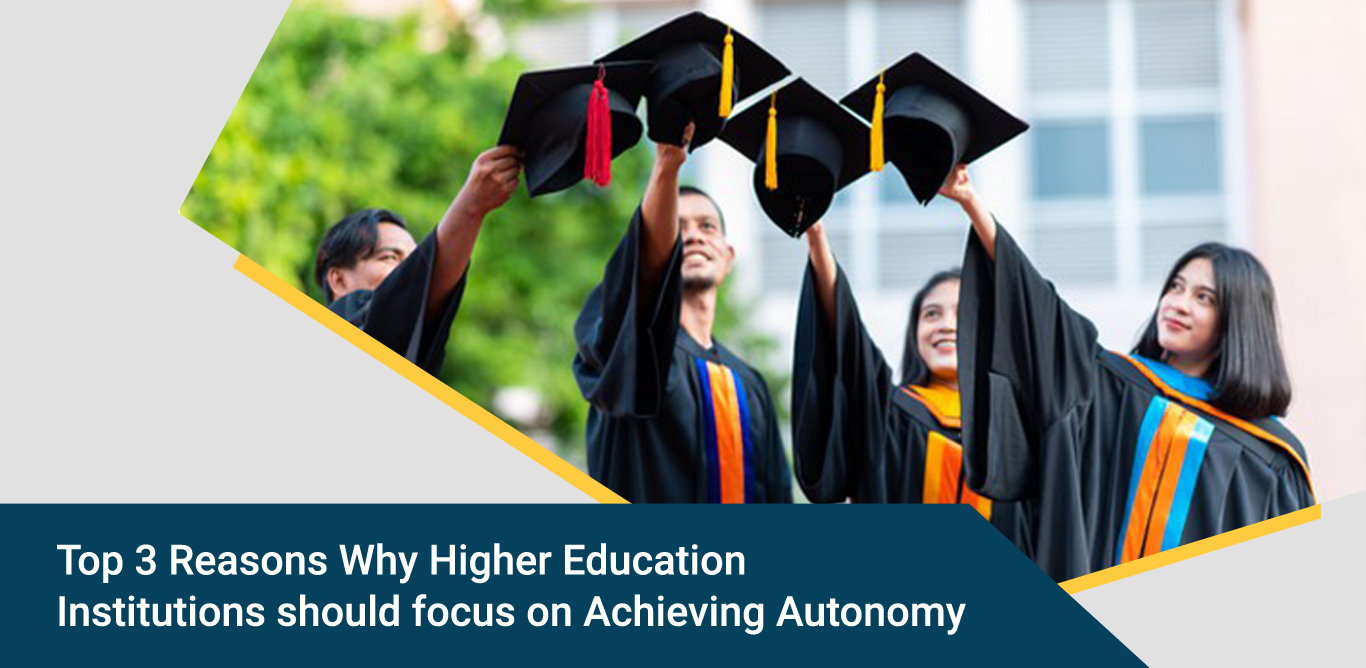 s
s